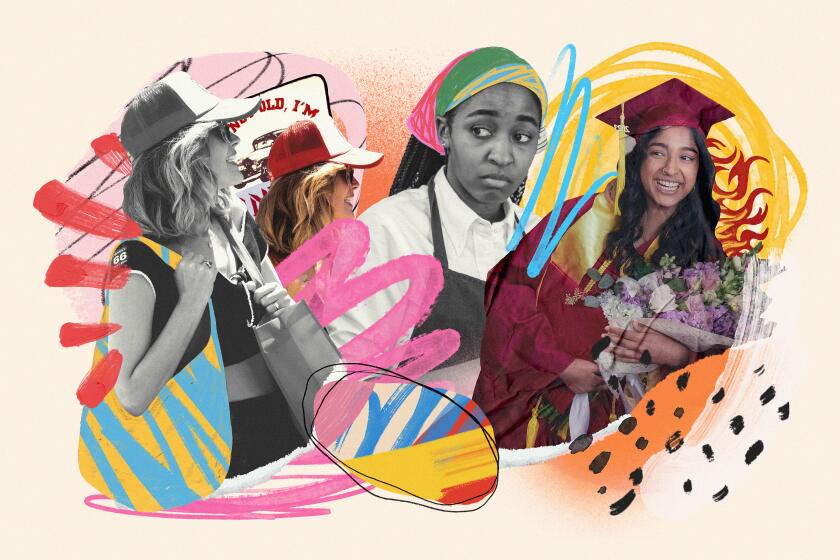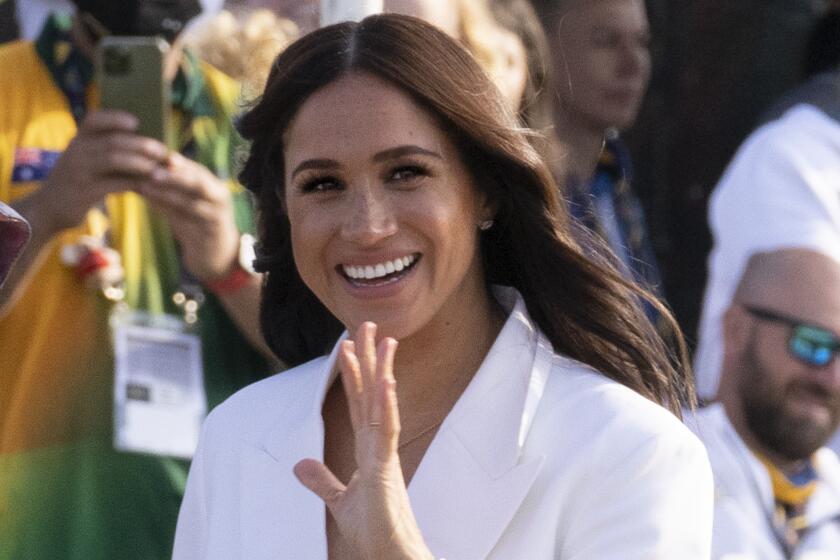In ‘Queenie,’ Dionne Brown subtly portrays a woman undergoing a quarter-life crisis
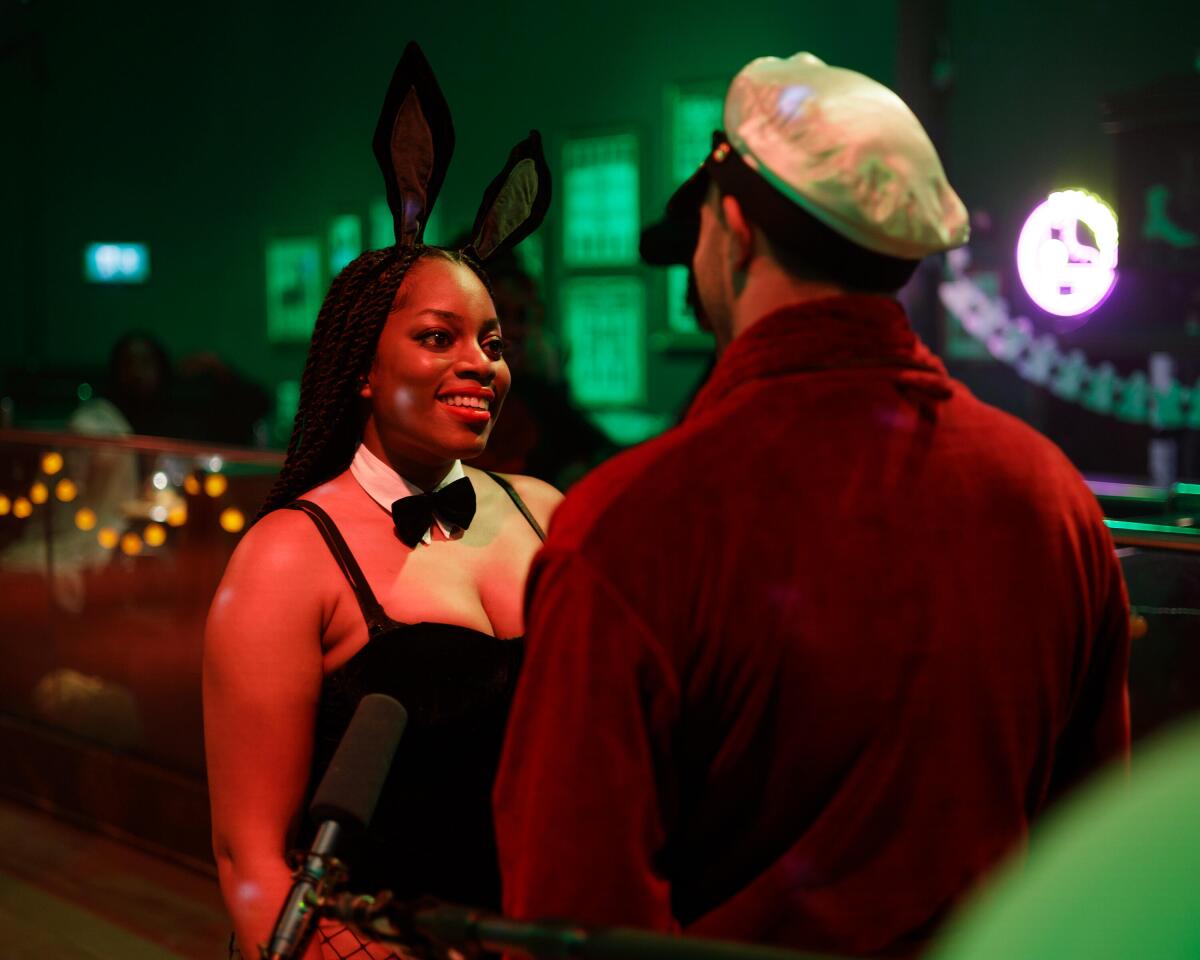
- Share via
“Queenie,” premiering Friday on Hulu, is a lovely dramedy based on Candice Carty-Williams’ 2019 novel of the same name. Reviews of the London-set book described it as a “Black ‘Bridget Jones,’” but it belongs to a long line of stories of evolving young or youngish women plumbing the meaning of life and love and working through bad old business so that potentially good new business may be entertained. It’s a fertile genre that onscreen encompasses “Mary Tyler Moore,” “The Mindy Project,” “New Girl,” “Felicity,” “Fleabag” and “Insecure,” with which “Queenie” shares racial specificity. On the page it runs back to Jane Austen and forward to innumerable beach reads.
The series, with Carty-Williams attached as showrunner, makes an immediate good impression, thanks to the realism of its mise-en-scène and especially for a phenomenal Dionne Brown, in her first major role. As Queenie, a 25-year-old second-generation British Jamaican, Brown, who is in nearly every scene that isn’t a flashback and narrates throughout, makes a whole person out of a variety of attitudes — hopeful, hopeless, hungover, exuberant, fretful, thoughtful. It’s a subtle performance of a big character; you can read a whole book in her face.
Several new series and new seasons are set to air this summer, but some shows will also be ending. Here, our writers share what shows they are most anticipating.
“Queenie” kicks off with a gynecological examination, which brings up some surprising, held-back bad news, and a frustrating day at work. The social media assistant to newspaper editor Gina (Sally Phillips, from the “Bridget Jones” movies, possibly no more coincidentally than the Playboy bunny outfit Queenie wears to a costume party), she aspires to become a reporter. But her pitches aren’t landing. We don’t really see her working so much as failing to work, as she’s failing elsewhere.
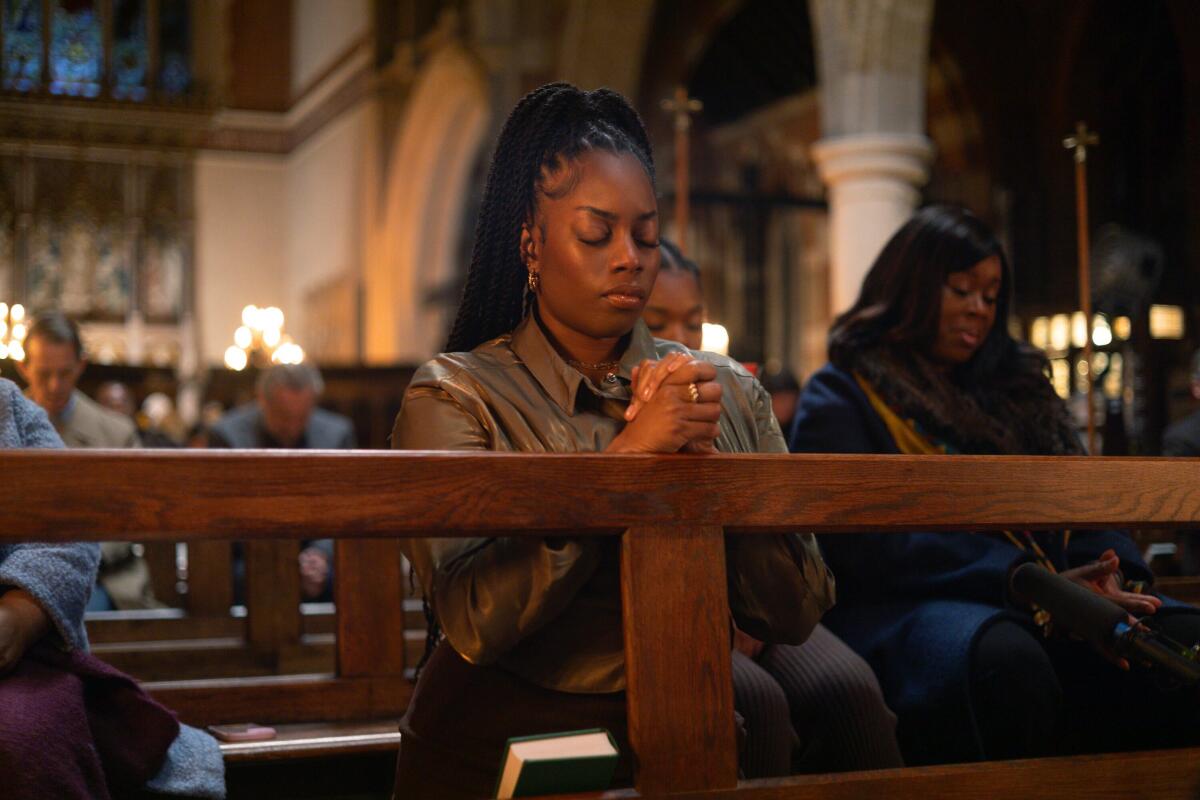
It all sets her on a collision course with Tom (Jon Pointing), her white boyfriend of three years. After an outburst at his mother’s birthday dinner, where, thanks to Tom’s grandmother, the phrase “half-caste” makes an appearance in reference to possible children, they separate. Queenie will spend a long time obsessing over him, until she overcorrects with a string of one-or-more-night stands and “situationships” with unsatisfying men who have a tendency to turn out to be married. (Unlike most television shows, “Queenie” is something of a brief against casual sex, though it’s also pretty full of it.)
“My friends are great, my family are my family,” Queenie tells God, having found herself in a church with her family, “but I feel so lonely all the time, to the point that I keep having sex … with guys I don’t really care about just to feel — something. Is it actually me, Lord? Do I push everyone away?”
However, as much as she may be contributing to the chaos in her life, men as a class don’t come off well here, the significant exceptions being her grandfather, Fred (Joseph Marcell), and Frank (Samuel Adewunmi), the cousin of her friend Bellah (Kyazike Mayagenda). It’s giving nothing away to note that we recognize Frank as a better sort of fellow the first time we see him, even if Queenie can’t. (She doesn’t date Black men, she says, because she doesn’t want to turn out like her mother, a notion that opens the door to future revelations of suppressed trauma.) For all the dark places it goes, “Queenie” also plays by the rules of romantic comedy.
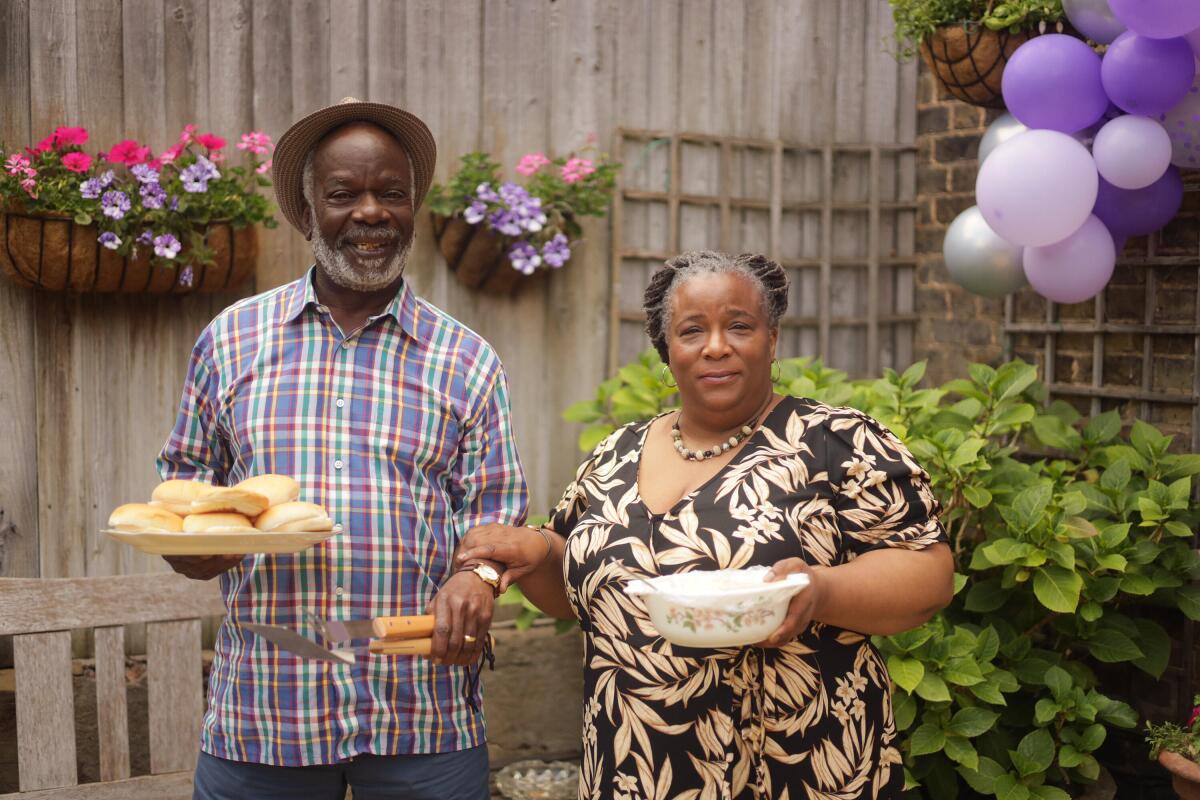
If Brown is the center of the action and of attention, she’s got fine support from a cast whose work is never less than authentic, however much their characters might exist to fill a dramatic niche. A circle of friends, whom she calls the Corgis (the book was written during the reign of Queen Elizabeth II) includes co-worker Darcy (Tilly Keeper), lively Bellah and posh Cassandra (Elisha Applebaum), whose lives seem to be comparatively in order, at least for the moment. Across a run of parties and random encounters, conversations and contretemps, Queenie will fall out and in with them.
Most delightfully, there’s her steadfast family, each as big as Queenie in their own way: grandparents Fred and Veronica (Llewella Gideon), with whom she’ll live for a time; stylish aunt Maggie (Michelle Greenidge), who is full of advice; and spritely young cousin Diana (Cristale De’Abreu). But she is not talking to her mother, Sylvie (Ayesha Antoine), for reasons that will be revealed.
Where many series about 20-somethings tend to be sensational and glossy, with glamorous, idealized characters, the strength of “Queenie” is its very ordinariness. That’s not to say these people lack glamour — the series is bursting with color. (It’s worth shouting out costume designer Cobbie Yates and hair and makeup designer Dumebi Anozie, who have sensitively matched looks to spirit.) But it’s a glamour that seems to emerge from the characters rather than being imposed upon them, or decided at the casting stage. These are people who look like ... people.
Queenie’s journey from self-sabotage to self-worth will change her relationship to those around her, but the series doesn’t exactly have a driving plot. This actually works well for television; “Queenie” reads more as an episodic rather than a serial comedy, and as with episodic comedy, it’s a place to settle into. Things change, but life goes on, as the arc of comedy slowly bends toward happiness.
More to Read
The complete guide to home viewing
Get Screen Gab for everything about the TV shows and streaming movies everyone’s talking about.
You may occasionally receive promotional content from the Los Angeles Times.
